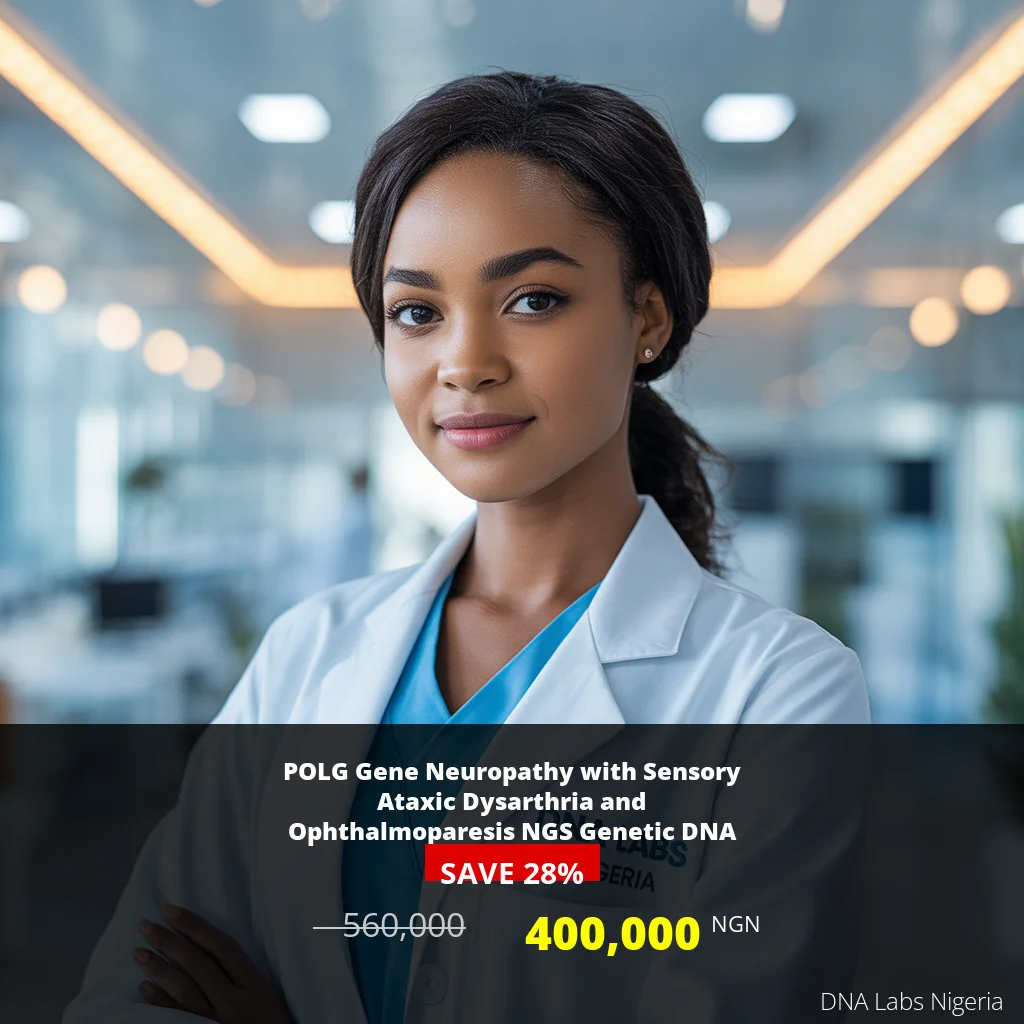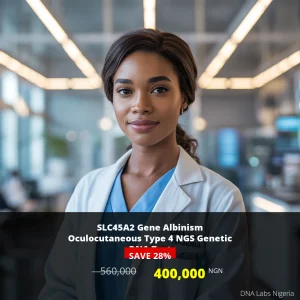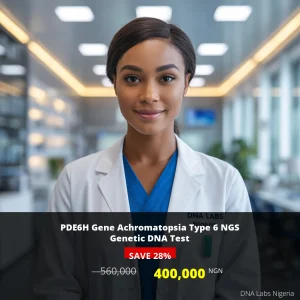POLG Gene Neuropathy with Sensory Ataxic Dysarthria and Ophthalmoparesis NGS Genetic DNA Test
Introduction
The POLG Gene Neuropathy with Sensory Ataxic Dysarthria and Ophthalmoparesis NGS Genetic DNA Test is a cutting-edge diagnostic tool that plays a crucial role in identifying genetic predispositions to neurological disorders. Utilizing Next-Generation Sequencing (NGS) technology, this test examines the POLG gene, which is known to be associated with various neurological conditions.
What the Test Measures
This test detects mutations in the POLG gene, which can lead to a range of neurological symptoms including:
- Sensory ataxia
- Dysarthria (difficulty speaking)
- Ophthalmoparesis (weakness of the eye muscles)
Who Should Consider This Test?
This test is particularly recommended for individuals experiencing symptoms such as:
- Unexplained ataxia
- Difficulty in speech
- Eye movement abnormalities
Additionally, individuals with a family history of neurological disorders or those who have been advised by a neurologist should consider this test.
Benefits of Taking the Test
- Early diagnosis of potential genetic disorders
- Informed decision-making regarding treatment options
- Family planning and genetic counseling opportunities
Understanding Your Results
Results from the POLG Gene Neuropathy test will provide insights into any detected mutations. A genetic counselor will guide you through the interpretation of the results, helping you understand the implications for your health and that of your family.
Pricing Information
| Test Name | Discount Price | Regular Price |
|---|---|---|
| POLG Gene Neuropathy with Sensory Ataxic Dysarthria and Ophthalmoparesis NGS Genetic DNA Test | 400,000 NGN | 560,000 NGN |
Book Your Test Today!
Don’t wait to uncover vital information about your genetic health. Book your POLG Gene Neuropathy with Sensory Ataxic Dysarthria and Ophthalmoparesis NGS Genetic DNA Test today by calling or WhatsApp us at +2348110567037. Our dedicated team at DNA Labs Nigeria is here to support you every step of the way.
Turnaround time for results is approximately 3 to 4 weeks, and samples can be collected via blood or extracted DNA. Ensure to provide a clinical history and attend a genetic counseling session to draw a pedigree chart of affected family members.







